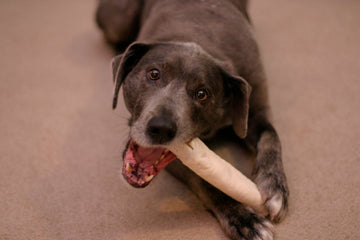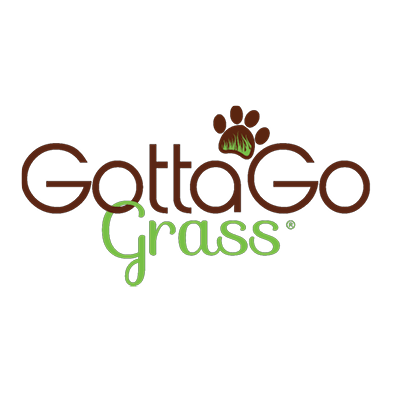
Chewing is more than just a quirky dog habit—it’s an essential part of their well-being. From teething puppies who need relief to adult dogs managing stress and boredom, chewing satisfies a deeply rooted instinct. It also comes with added perks: scraping away plaque, keeping gums healthy, and giving your dog a fun outlet for their energy. But with so many chew options on the market, one of the biggest debates among dog parents remains: rawhide vs. dental chews.
Rawhide has long been marketed as the go-to for a durable, satisfying chew. For decades, it’s been a staple because it lasts a long time, is widely available, and keeps dogs busy. However, in recent years, pet experts and veterinarians have encouraged owners to be mindful of certain concerns, such as choking hazards, digestive issues, and variations in manufacturing quality. These considerations have shifted attention to newer alternatives—most notably dog dental chews, which are specifically designed to support oral health while also being easier to digest.
What Is Rawhide?
Rawhide is made from the inner layer of cow or horse hides, shaped into rolls, twists, or bones. Pet stores often label rawhide as a long-lasting chew, and many dogs enjoy its tough texture. For years, it has been a favorite due to affordability and availability. That said, pet parents should keep in mind some potential challenges:
-
Choking and blockages: Large chunks of rawhide may break off and pose choking risks or cause intestinal blockages.
-
Digestibility: Rawhide can swell in the stomach, which may upset digestion for some dogs.
-
Quality concerns: Lower-grade rawhide products may use chemicals in processing.
The American Society for the Prevention of Cruelty to Animals (ASPCA) doesn’t discourage rawhide altogether, but does advise pet parents to limit the amount of rawhide their dogs consume at one time. Moderation and supervision help reduce these risks.
Safer Alternatives to Rawhide
Rawhide remains an option for dogs who love a tough chew. But if you’re looking for something that balances chewing satisfaction with other health benefits, these products are often the better fit:
Bully Sticks
Bully sticks are made from beef muscle and are highly digestible. Rich in protein, they provide a satisfying chew that dogs love. However, because they can be calorie-dense, it’s best to offer them in moderation—especially for dogs prone to weight gain.
Synthetic & Rubber Chews
Durable rubber toys, like nylon chews, can provide long-lasting entertainment. When sized correctly, they’re generally safe and reusable, making them a cost-effective choice. However, they don’t offer the same natural dental-cleaning benefits as edible chews.
Dog Dental Chews
Dental chews are specifically designed to support oral hygiene while still being fun to chew. They:
-
Help reduce plaque and tartar buildup through their texture and shape.
-
Freshen breath with natural ingredients.
-
Provide digestibility not found in rawhide.
-
Are made from limited, natural ingredients in many cases.
Because they’re designed with oral care in mind, dental chews are increasingly recommended by vets as a safer, more effective alternative to rawhide.

Redbarn Chew-A-Bulls® Hydrant Dental Treats
When it comes to choosing the right dental chew, not all products are created equal. One standout option is the Redbarn Chew-A-Bulls® Hydrant Dental Treats, available at Gotta Go Grass®, along with grass potty pads for dogs and other pet care essentials.
Why They’re a Safer Alternative
Chew-A-Bulls contain no rawhide, gluten, wheat, or corn. They’re highly digestible, easy on sensitive stomachs, and made in the USA with all-natural, limited ingredients. That means you can feel confident knowing you’re giving your dog a safe, wholesome treat.
Dental & Health Benefits
These treats aren’t just tasty—they’re designed with your pup’s oral health in mind:
-
Hydrant-shaped design: The fun hydrant shape with ridges and grooves helps clean those tricky spots between teeth and gums.
-
Plaque and tartar control: Regular chewing helps reduce harmful buildup.
-
Fresh breath support: Ingredients like parsley and cumin provide antioxidants and natural breath-freshening benefits.
-
Gentle gum massage: Chewing action stimulates gums and supports overall dental health.
Feeding Guide & Safety Tips
To get the most out of Chew-A-Bulls while keeping your pup safe, it’s recommended to offer one chew per day for medium-sized dogs weighing 30–50 pounds. Always supervise your dog during chewing sessions and provide fresh drinking water at all times. If any small pieces break off, discard them right away to prevent choking. These treats are best suited for dogs six months and older and weighing at least five pounds.
Choosing the Right Chew for Your Dog
Not every chew fits every dog. When deciding between dental chews, bully sticks, or rubber toys, consider:
-
Size: The chew should be appropriately sized for your dog’s mouth.
-
Age: Puppies, adults, and seniors may need different types of chews.
-
Chewing style: Heavy chewers may need durable options, while light chewers may prefer softer treats.
-
Sensitivities: Dogs with allergies or sensitive stomachs may need limited-ingredient chews.
And remember: supervision is key. Even the safest chew can become a hazard if large pieces are swallowed. For dogs with existing dental or digestive concerns, check with your veterinarian before introducing new chew products.

Better Chews, Happier Dogs: The Bottom Line
Rawhide has been a tried-and-true chew for generations, and when used responsibly, it can still provide dogs with satisfaction and entertainment. But as awareness grows around potential concerns, more pet parents are choosing alternatives that offer the same joy with added peace of mind.
Among those alternatives, dental chews stand out for being both fun and functional—supporting oral hygiene, freshening breath, and being easier to digest. Redbarn Chew-A-Bulls® Hydrant Dental Treats, available at Gotta Go Grass®, take it a step further with their wholesome ingredients, unique shape, and proven dental benefits.
If you’re ready to upgrade your dog’s dental routine, give your pup something to smile about. Shop premium dental treats for dogs at Gotta Go Grass today and keep their teeth sparkling, their breath fresh, and their tail wagging!
FAQs About Dog Dental Chews vs. Rawhide
1. Are rawhide chews safe for dogs?
1. Are rawhide chews safe for dogs?
Rawhide can keep dogs entertained and may help with plaque removal, but it does come with some considerations. Large pieces can pose choking risks, and lower-quality rawhide may contain processing chemicals. If you choose rawhide, offer it in moderation and supervise your dog while chewing.
2. What makes dog dental chews safer than rawhide?
2. What makes dog dental chews safer than rawhide?
Dental chews are designed to be more digestible and are often made with natural ingredients. Their textures and shapes help reduce plaque, massage gums, and freshen breath—while being gentler on a dog’s stomach than rawhide.
3. Can puppies have dental chews?
3. Can puppies have dental chews?
Most dental chews are recommended for dogs six months and older, weighing at least five pounds. Puppies younger than this may have sensitive teeth and digestive systems that are not ready for chews.
4. How often should I give my dog a dental chew?
4. How often should I give my dog a dental chew?
For most medium-sized dogs, one dental chew per day is a good guideline. Always check the product’s feeding recommendations and adjust based on your dog’s size, activity level, and needs.
5. Do dental chews replace brushing my dog’s teeth?
5. Do dental chews replace brushing my dog’s teeth?
Not completely. Dental chews help control plaque and tartar, but they don’t replace regular brushing or professional cleanings. Think of them as a valuable supplement to your dog’s dental care routine.
6. What should I do if my dog swallows a large piece of a chew?
6. What should I do if my dog swallows a large piece of a chew?
If your dog swallows a sizable piece, keep an eye out for signs of choking, discomfort, or digestive upset. If you notice anything concerning, contact your veterinarian right away.




